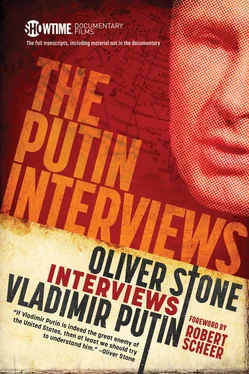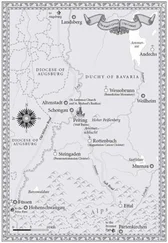OS:Yeah, that’d be good.
ON INTERNATIONAL RELATIONS
OS:The US and China have had some serious issues in the South China Seas, maritime issues. This must be of concern to Russia. Have you had any conversations with the Chinese premier?
VP:No, maybe we’ve touched upon it but only in general terms. Our position on that matter is well-known and it consists of the following. All regional disputes, problems, have to be addressed in the course of consultations by the countries of the region. Any interference from outside is always counterproductive. As far as I know, China is engaged in this kind of dialogue with the regional powers.
OS:Except the regional powers feel like they’re small, and they go to the United States for their nuclear umbrella.
VP:I’m not so sure about that. I think that the Philippines no longer thinks that.
OS:Yes. You have a different point of view.
VP:But you know that this dispute has even been elevated to the level of the Permanent Court of Arbitration. And it was started from the Philippines.
OS:Okay. So is that a solution?
VP:I don’t think so. I’m going to tell you why. The thing is, for such a decision to be recognized, several conditions have to be met. First, all the parties to a dispute have to apply to this court. And China has not applied to this court. And the second condition is that the court has to listen to all the parties to the dispute. But China has not been called to that court and its position has not been heard. So I think this court ruling can hardly be recognized as valid. But let me reiterate, the current leadership of the Philippines didn’t insist on this court ruling. We see right now the Philippines champion a dialogue with China on this matter, and I think this is the best avenue to pursue.
OS:Japan and South Korea are two gigantic countries—very Western, very capitalist in a sense…. Very capitalistic economies and Japan has the second most US bases in the world, and South Korea has many bases. Some of these are US bases, and obviously because of the US bases it becomes a US issue.
VP:If they think so. Let me say once again that the best way is not to add fuel to these disputes, to these contradictions. These disputes should not be tried, shouldn’t be used to secure someone’s position in the region. On the contrary they have to push forward in normal, positive, constructive dialogue with a view to finding solutions to the outstanding issues.
OS:In Russia, in every country there are reactionaries and hardliners. America, Russia, all the countries of the world. In Russia, would you say that you were getting pressure from nationalists, hardliners, for Russia to take a harder position on all these matters?
VP:I wouldn’t go so far as to say that I feel any pressure, but we’ve got people of different points of view. Some of them quite influential—they are influential with regard to public opinion. And I certainly have to take their position into consideration. Just as I should take into account the position of more liberally-minded people. That is my job. I’ve got to consider different positions and arrive at an acceptable solution.
OS:What’s this?
VP:This is one of the working offices where my colleagues and I organize video conferences. We can organize video conferences with different regions of Russia, with different agencies, government ministries. We can hold conferences here without making people come here in person. To save time.
OS:10 or 11 time zones?
VP:I think 11.
OS:Can we talk? I think I’ll sit on this side, it might look nicer. I love this map. So, this is a situation-type room?
VP:Yes, indeed so.
OS:This is commando raids and stuff?
VP:No, are you talking about my functions as Commander in Chief and from where I perform those functions? Well, we can do that from here, we’ve got the necessary means of communications, we’ve got a direct link to the Ministry of Defense. Incidentally, have a look at those time zones—you can see them. The westernmost point, Kaliningrad—on the left. And the easternmost point. Everyone calls Japan the country of the Rising Sun. But New Zealand is to the east from Japan. And eastwards from New Zealand is Chukotka. It’s one of the Russian regions. And before Chukotka, between Chukotka and Alaska, the Bering Strait, is just 60 miles. So once again Chukotka is the easternmost part of Eurasia. I would call Chukotka the country of the rising sun.
OS:Okay, so in conventional military terms your budget, as you said the American budget is six hundred billion and your annual budget is 66 according to Russian statistics—66. That’s about a tenth of American spending. The Chinese are 215 billion. Saudi Arabia is at 87. Saudi Arabia, again… which leaves Russia in fourth place at 66. Is this an accurate figure?
VP:Yes, it’s roughly just as you said.
OS:So Saudi Arabia’s spending more money than you are.
VP:Well, it turns out they do spend more than we do.
OS:How do you do it? I mean, you have quite an army, quite an intelligence service. But what’s the trick? I mean, you don’t have lobbies that cost a lot of money? There’s no graft, no corruption in this thing?
VP:Well, certainly just as in any other country we’ve got all of that. But we’ve got this understanding that the most important thing is that the country is a well-functioning, well-performing economy. So we’ve got to coordinate our ambitions and our needs and our opportunities in the military field. In defense, we’ve got certain traditions—traditions that have been established by our predecessors. One of our prominent commanders, Suvorov, used to say, “It is not with numbers that you’ve got to fight, it is with your skills.” The armed forces have to be compact, but very modern and efficient. We spend enough. What I mean is that the ratio to our GDP—our military expenditure amounts to more than three percent of our GDP. And for Russia, that is quite a lot. This year, we have managed to economize when drafting our budget thanks to bringing down our military expenditure. So step by step we’re going to bring our military expenditure to 2.7/2.8 percent of our GDP in the coming three years.
OS:The US makes a lot out of building up—they keep talking about its anti-missile systems. Is there any reason to believe there’s been some kind of breakthrough in their technology?
VP:So far there has been no breakthrough. But this is possible. And we certainly have to take that into account. And we’re working to ensure our security in the mid-term and in the long term.
OS:But they have a plan, they’re doing something to gain first strike capability. I feel that they are really working. They feel they can get an advantage, if they can break through that ABM missile system.
VP:Certainly that is exactly the case.
I think pulling out of the ABM treaty was a mistake. They’re trying to build an umbrella to protect themselves. But in reality, this sparks an arms race. New suspicions pop up. To cite an example, deploying this ABM system in Romania, [175] Background Information: See, “US launches long-awaited European missile defense shield,” Ryan Browne, CNN (May 12, 2016). Retrieved at: http://www.cnn.com/2016/05/11/politics/nato-missile-defense-romania-poland/
let’s do the following—they deploy a ground system which can be used to station cruise missiles of intermediate range that are sea-launched. And the US has such missiles and they are not prohibited by the existing treaties. And these missiles can be stationed there and deployed there. We’re not going to see that. It is only going to take several hours to reconfigure the computer program. And that’s that. Yeah. And apart from that, should this system become fully operational, we’ll have to think about how we can penetrate the system. We can overcome it and we can relocate our ground-based nuclear weapons. We’re lucky, you see, because we would have to re-equip to change and modernize our ground systems anyways. Because the time has come that from the technological point of view they have to be modernized. And we’re going to do exactly that given the situation that we see. And given the ABM system deployed by the Americans.
Читать дальше












